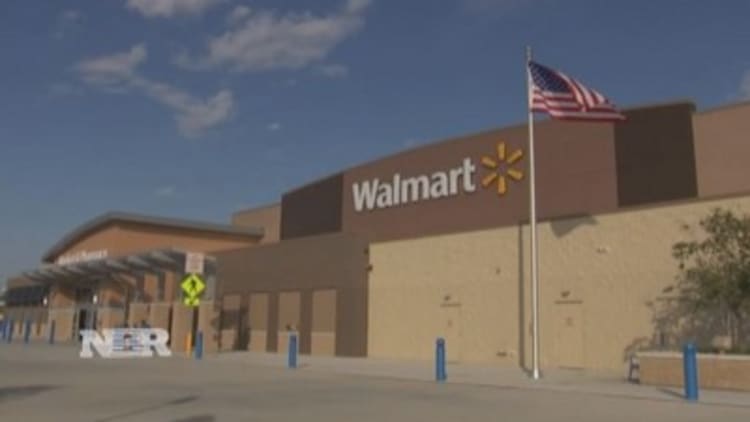When Target appointed an interim CEO following Gregg Steinhafel's departure in May, analysts and executive placement experts saw it as an indication the retailer would for the first time reach outside for a new leader.
The big-box chain went further against the grain on Thursday, when it announced that Steinhafel's permanent replacement would come from the consumer packaged goods industry.
Although the selection of Brian Cornell, who serves as CEO of PepsiCo Americas Foods, came as a bit of a surprise, experts said they weren't shocked to see Target reach outside of the industry for its pick.
That's because the retail field has struggled to compete for talent with industries that offer higher paychecks, while the candidate pool lacks a bevy of people with both merchandising and financial know-how.
Read More
Les Berglass, CEO of retail placement firm Berglass + Associates, said Cornell's experience at PepsiCo, paired with his prior experience as president and CEO of Sam's Club, will be advantageous to the company's business.
"He wears a wholesale hat and he wears a retail hat, and that's a rare combination," Berglass said.
Because Target's grocery business leans heavily on vendors such as Pepsi, Cornell's experience at the food and beverage distributor will help it find a delicate balance between pushing for exclusive products at low prices without being too forceful, Berglass said. This is a key skill for the company's new head as Target looks to expand its grocery business, including in-store pickup for some of its non-perishable foods.
Jason Hanold, managing partner of boutique executive search firm Hanold Associates, said it's logical for retailers to extend their search outside of the industry, so long as they come from a business that's "wired to consumers."
"[Cornell's] not the first executive to come from another industry and infiltrate the ranks of retail," said Elaine Hughes, founder and CEO of executive search firm E.A. Hughes. She pointed to Kohl's Chief Customer Officer Michelle Gass, a Starbucks alum, as an example.
Read MoreHelp wanted: These retailers need a CEO
When tapping talent from other industries, it's important to make sure they're familiar with the "burden of inventory," Berglass said. In particular, he said he'd like to see more retailers tapping into the digital space for new hires, for example poaching talent from Amazon.

Hanold said the most important characteristic is to find a good leader—something Target did in appointing Cornell. In the aftermath of Target's massive data breach over the holidays, Target needs a "very genuine leader" to restore credibility with consumers and shareholders.
"What's promising is you hear reputationally how strong he was," Hanold said. "That is a phenomenal trait for what Target needs most right now."
Read MoreBig to-do list awaits Wal-Mart's new US head
Berglass also pointed to Cornell's international experience as a positive for Target, which stumbled in its entry into Canada last year. At PepsiCo, Cornell oversaw a portfolio that included all of the company's Latin American food and snack businesses.
Through his experience with grocery, which is a lower-margin business than traditional retail, Cornell also knows how to "wring out the sponge" better than people with a traditional retail background, Berglass said. Wells Fargo analyst Matt Nemer said his familiarity with membership clubs will also be particularly useful to growing Target's REDcard loyalty program.
Still, the shift won't be all smooth sailing for Cornell. For one, Hanold pointed to the fact that the executive hasn't yet been tested with turning around a struggling business. In a note to investors, UBS analyst Jason DeRise noted Cornell also has less experience with ecommerce—which he estimates counts for less than 2 percent of its US sales—and the home and apparel categories, "which are critical areas for the Target turnaround." DeRise estimates online accounts for less than 2 percent of US sales.
This is particularly an issue because the fashion cycle changes much more rapidly than the consumer products industry, Hughes said.
Meanwhile, JP Morgan analyst Christopher Horvers called into question Cornell's background in grocery and packaged foods as possibly "taking another uncomfortable step closer to Wal-Mart."
"Target has a differentiated positioning relative to big discount retailers," Stifel Nicolaus analyst David Schick said. "Consumables matter but business was best when Target's discretionary differentiation was at its strongest."
—By CNBC's Krystina Gustafson


